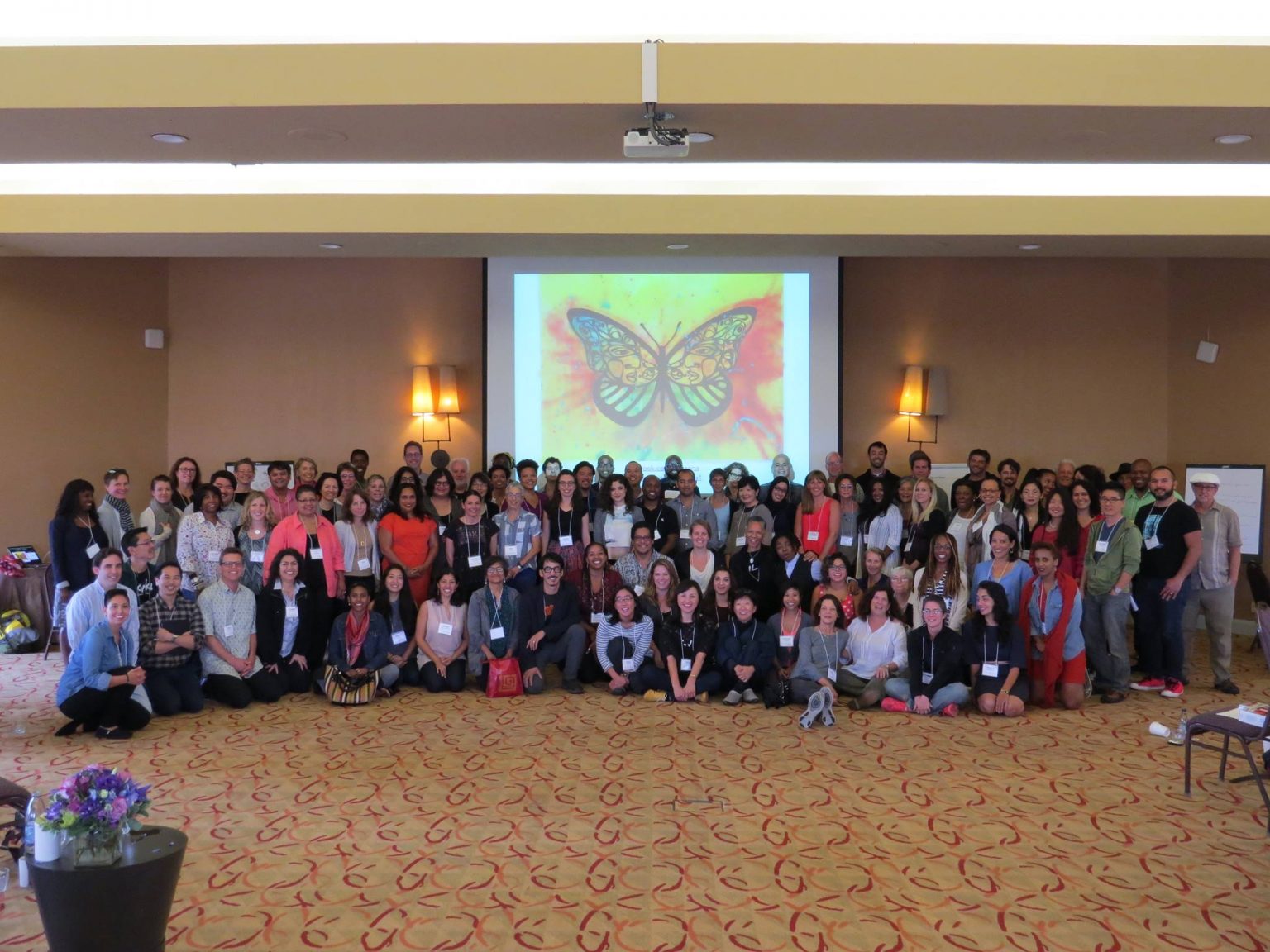
I Will Stand By You: A Reflection on TWI’s Sixth Retreat
TWI held its first weekend retreat in October 2007 with the aim of bringing together our current grantees with our board and staff for a weekend of reflection, renewal, and relationship building. With that aim still in mind, we held our sixth one earlier this month in Santa Cruz. I’m thankful to TWI board member, Vanessa Whang, for beautifully capturing what a special event it was. As Vanessa notes, our retreats have evolved into much more than a “grantee” gathering and now include other funders, leaders of affinity groups, former grantees and other kindred spirits. I am always moved by our retreats. They are powerful markers of how far TWI has come since I started here in 1988 — and they vividly remind me how blessed we are to be connected to such a wonderful network of individuals and organizations.
Demographically, this retreat was dramatically different than our first one, which was largely white and generally older (also much smaller). Looking out at the over 100 people who joined us in Santa Cruz, I was struck by what a more diverse and inclusive group we were (in all sorts of ways) and how enriched our space was because of it. I have learned much since 2007 (and continue to learn) about the importance of being intentional about diversity and inclusion in all aspects of our work.
I also continue to learn from the different ways we experiment with the retreat’s design (including more focus on designing for introverts). While all of our retreats have incorporated a healthy mix of free time and structured sessions, we usually play around with different ways to formally engage participants.
This year was no different, as for the first time we:
- assigned people to “pods” (home groups they met with each day of the weekend)
- incorporated singing throughout the weekend (the fabulous Melanie DeMore lead us in song)
- heard from dynamic plenary speakers (Eva Paterson and Favianna Rodriguez)
- held a creativity and culture open mic session (a big hit with those who participated)
- offered repeated small group sessions that ranged from presentation/discussion to more experiential formats that included meditation and floral sculpture, creative writing, storytelling and being out in nature.
We were really pleased with how these experiments turned out and are incredibly grateful to all those who played a part. Since over half of the retreat participants were new, it was wonderful to have so many TWI “ambassadors,” particularly those who facilitated the pods, to help us hold the space and co-create the experience.
As always, there were things we can improve on that we will incorporate the next time around (a couple of years from now).
Three weeks out from the retreat, there are many things that stick with me, but one in particular I want to note is something that was part of our traditional format. We always have a “Saturday Night at the Movies” and this year we screened American Revolutionary: The Evolution of Grace Lee Boggs. It’s a great film about a truly inspiring woman. Many people watching the film knew and admired her, but more than a few weren’t familiar with her story. As it turned out, she died the day after our retreat at the age of 100, which made me even more grateful that we had been able to have the shared experience of watching the film together (POV is streaming the film for free until November 4).
One line from the movie that stuck with me is when Grace said people working for social change sometimes put too much emphasis on activism and not enough on reflection. She also noted the power of conversation and that words matter. No surprise that those points resonated with me and TWI’s values.
In particular, here are three questions I’ve been sitting with:
- how can TWI be both inviting and challenging as we engage with others to imagine different ways of being and doing within philanthropy?
- creating spaces for practitioners and funders to come together in more authentic ways is really important and is there a need for allied funders to come together by themselves to more fully explore how we build momentum for shifting philanthropic practice both in terms of what we fund and how we fund?
- how will our approaching sunset date in 2022 influence our final three retreats?
Looking ahead, I can only hope we approach these and other questions with the kind of humanity and thoughtfulness Grace Lee Boggs evidenced in her life. As I write that sentence, though, I’m actually confident that we will. All I have to do is picture our recent retreat and the community that was gathered there singing the lines of Melanie DeMore’s song: “I will be your standing stone. I will stand by you.”